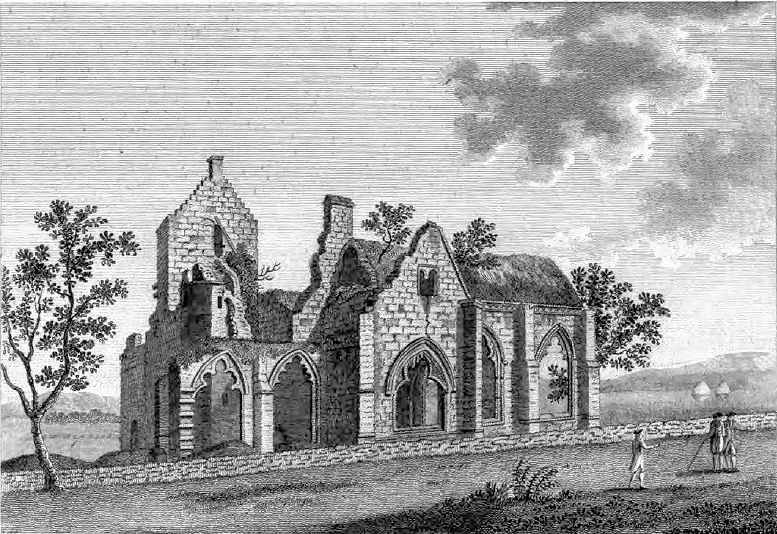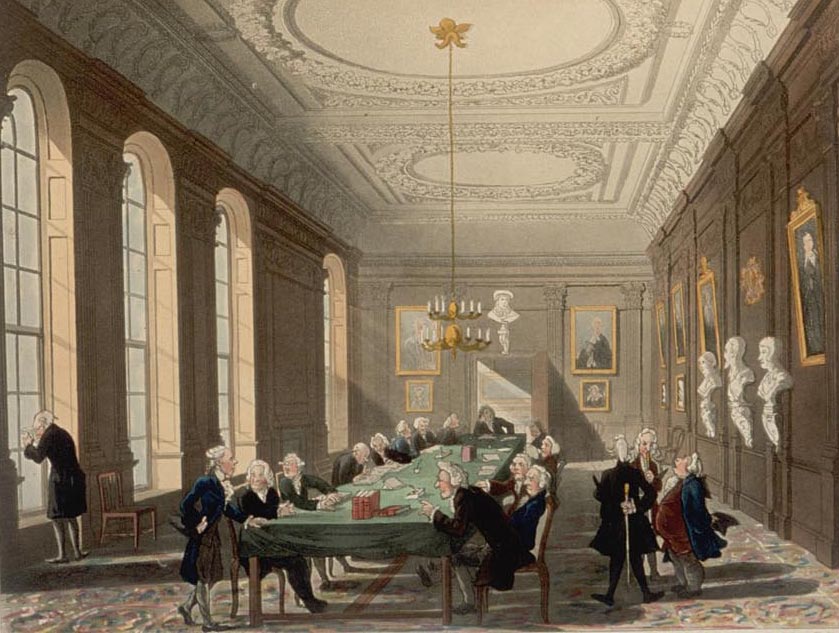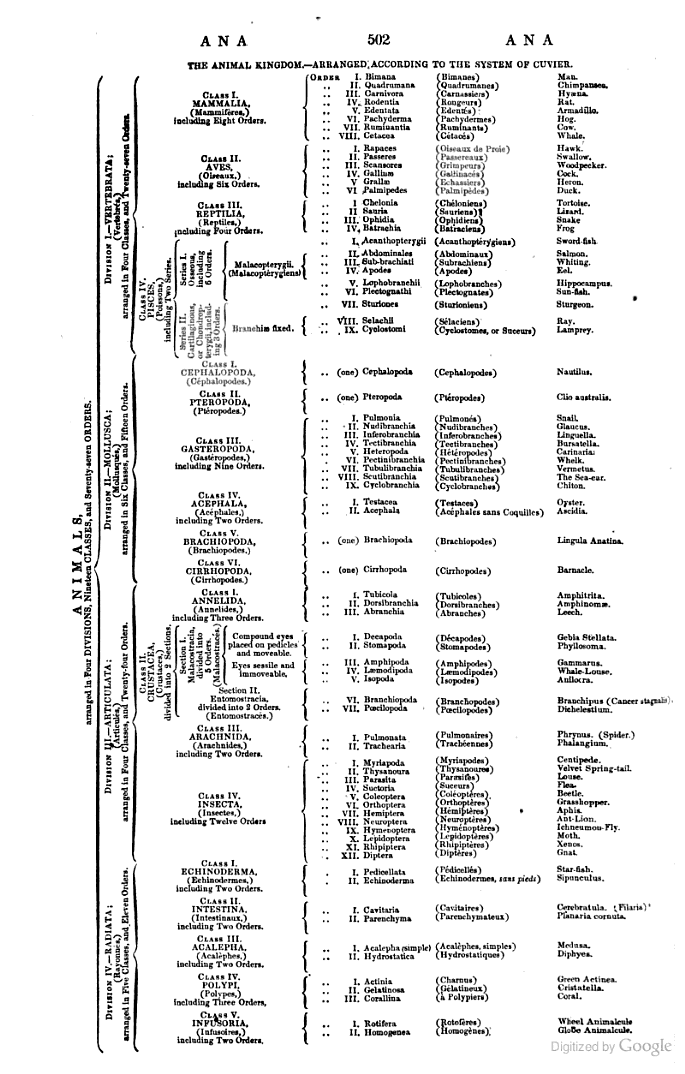|
Robert Dickson (physician)
Robert Dickson (1804 – 13 October 1875) was a Scottish physician and botanist. Biography Dickson was born at Dumfries in 1804, and educated at the high school and the university of Edinburgh, where he graduated M.D. in 1826. Having settled in London, he became a fellow of the Royal College of Physicians in 1855, and continued to practise there till 1866, when he retired to the country. He was an accomplished botanist, and lectured on botany at the medical school in Webb Street, and afterwards at St. George's Hospital. All the articles on ‘Materia Medica’ in the ''Penny Cyclopædia ''The Penny Cyclopædia'' published by the Society for the Diffusion of Useful Knowledge was a multi-volume encyclopedia edited by George Long and published by Charles Knight alongside the '' Penny Magazine''. Twenty-seven volumes and three su ...'' were by him, and he also published several articles on popular science in the ‘Church of England Magazine.’ He died on 13 October 1875. In 1 ... [...More Info...] [...Related Items...] OR: [Wikipedia] [Google] [Baidu] |
Dumfries
Dumfries ( ; ; from ) is a market town and former royal burgh in Dumfries and Galloway, Scotland, near the mouth of the River Nith on the Solway Firth, from the Anglo-Scottish border. Dumfries is the county town of the Counties of Scotland, historic county of Dumfriesshire. Before becoming King of Scots, Robert the Bruce killed his rival John Comyn III of Badenoch at Greyfriars Kirk in the town in 1306. The Young Pretender had his headquarters here towards the end of 1745. In World War II, the Norwegian armed forces in exile in Britain largely consisted of a brigade in Dumfries. Dumfries is nicknamed ''Queen of the South''. This is also the name of the town's Queen of the South F.C., football club. People from Dumfries are known colloquially in Scots language as ''Doonhamers''. Toponymy There are a number of theories on the etymology of the name, with an ultimately Common Celtic, Celtic derivation (either from Common Brittonic, Brythonic, Old Irish, Gaelic or a mixture of b ... [...More Info...] [...Related Items...] OR: [Wikipedia] [Google] [Baidu] |
University Of Edinburgh
The University of Edinburgh (, ; abbreviated as ''Edin.'' in Post-nominal letters, post-nominals) is a Public university, public research university based in Edinburgh, Scotland. Founded by the City of Edinburgh Council, town council under the authority of a royal charter from King James VI and I, James VI in 1582 and officially opened in 1583, it is one of Scotland's Ancient universities of Scotland, four ancient universities and the List of oldest universities in continuous operation, sixth-oldest university in continuous operation in the English-speaking world. The university played a crucial role in Edinburgh becoming a leading intellectual centre during the Scottish Enlightenment and contributed to the city being nicknamed the "Etymology of Edinburgh#Athens of the North, Athens of the North". The three main global university rankings (Academic Ranking of World Universities, ARWU, Times Higher Education World University Rankings, THE, and QS World University Rankings, QS) ... [...More Info...] [...Related Items...] OR: [Wikipedia] [Google] [Baidu] |
London
London is the Capital city, capital and List of urban areas in the United Kingdom, largest city of both England and the United Kingdom, with a population of in . London metropolitan area, Its wider metropolitan area is the largest in Western Europe, with a population of 14.9 million. London stands on the River Thames in southeast England, at the head of a tidal estuary down to the North Sea, and has been a major settlement for nearly 2,000 years. Its ancient core and financial centre, the City of London, was founded by the Roman Empire, Romans as Londinium and has retained its medieval boundaries. The City of Westminster, to the west of the City of London, has been the centuries-long host of Government of the United Kingdom, the national government and Parliament of the United Kingdom, parliament. London grew rapidly 19th-century London, in the 19th century, becoming the world's List of largest cities throughout history, largest city at the time. Since the 19th cen ... [...More Info...] [...Related Items...] OR: [Wikipedia] [Google] [Baidu] |
Royal College Of Physicians
The Royal College of Physicians of London, commonly referred to simply as the Royal College of Physicians (RCP), is a British professional membership body dedicated to improving the practice of medicine, chiefly through the accreditation of physicians by examination. Founded by royal charter from King Henry VIII in 1518, as the College of Physicians, the RCP is the oldest medical college in England. The RCP's home in Regent's Park is one of the few post-war buildings to be listed at Grade I. In 2016 it was announced that the RCP was to open new premises in Liverpool at The Spine, a new building in the Liverpool Knowledge Quarter. The Spine opened in May 2021. History The college was incorporated as "the President and College or Commonalty of the Faculty of Physic in London" when it received a royal charter in 1518, affirmed by Act of Parliament in 1523. It is not known when the name "Royal College of Physicians of London" was first assumed or granted. It came into use aft ... [...More Info...] [...Related Items...] OR: [Wikipedia] [Google] [Baidu] |
Penny Cyclopædia
''The Penny Cyclopædia'' published by the Society for the Diffusion of Useful Knowledge was a multi-volume encyclopedia edited by George Long and published by Charles Knight alongside the '' Penny Magazine''. Twenty-seven volumes and three supplements were published from 1833 to 1843. Editions The ''Penny Cyclopædia'' was originally published in 27 thin volumes between 1833 and 1843. Supplements were issued in 1851 and 1858. Despite its name, each individual volume cost 9d. apiece. Contributors The contributors to the ''Penny Cyclopædia'' were not individually credited with the articles they created, although a list of their names appears in volume 27. The contributors included many notable figures of the period, including the librarian Henry Ellis, the biblical scholar John Kitto, the publisher Charles Knight, the critic George Henry Lewes, the mathematician Augustus De Morgan, the surgeon James Paget, the statistician George Richardson Porter, the sanitary reforme ... [...More Info...] [...Related Items...] OR: [Wikipedia] [Google] [Baidu] |
1804 Births
Events January–March * January 1 – Haiti gains independence from France, and becomes the first black republic. * February 4 – The Sokoto Caliphate is founded in West Africa. * February 14 – The First Serbian uprising begins the Serbian Revolution. By 1817, the Principality of Serbia will have proclaimed self-rule from the Ottoman Empire, the first nation-state in Europe to do so. * February 15 – New Jersey becomes the last of the northern United States to abolish History of slavery in New Jersey, slavery. * February 16 – First Barbary War: Stephen Decatur leads a raid to burn the pirate-held frigate at Tripoli, Libya, Tripoli to deny her further use by the captors. * February 18 – Ohio University is chartered by the Ohio General Assembly. * February 20 – Hobart is established in its permanent location in Van Diemen's Land (modern-day Tasmania) as a British penal colony. * February 21 – Cornwall, Cornishman Richard Trevithick's newly built ''Penydarren' ... [...More Info...] [...Related Items...] OR: [Wikipedia] [Google] [Baidu] |
1875 Deaths
Events January * January 1 – The Midland Railway of England abolishes the Second Class passenger category, leaving First Class and Third Class. Other British railway companies follow Midland's lead during the rest of the year (Third Class is renamed Second Class in 1956). * January 5 – The Palais Garnier, one of the most famous opera houses in the world, is inaugurated as the home of the Paris Opera. * January 12 – Guangxu becomes the 11th Qing dynasty Emperor of China at the age of 3. He succeeds his cousin, the Tongzhi Emperor, who had no sons of his own. * January 14 – The newly proclaimed King Alfonso XII of Spain (Queen Isabella II's son) arrives in Spain to restore the monarchy during the Third Carlist War. * January 24 – Camille Saint-Saëns' orchestral ''Danse macabre'' receives its première. February * February 3 – Third Carlist War: Battle of Lácar – Carlist commander Torcuato Mendíri secures a brilliant victory, w ... [...More Info...] [...Related Items...] OR: [Wikipedia] [Google] [Baidu] |
19th-century Scottish Medical Doctors
The 19th century began on 1 January 1801 (represented by the Roman numerals MDCCCI), and ended on 31 December 1900 (MCM). It was the 9th century of the 2nd millennium. It was characterized by vast social upheaval. Slavery was Abolitionism, abolished in much of Europe and the Americas. The First Industrial Revolution, though it began in the late 18th century, expanded beyond its British homeland for the first time during the 19th century, particularly remaking the economies and societies of the Low Countries, France, the Rhineland, Northern Italy, and the Northeastern United States. A few decades later, the Second Industrial Revolution led to ever more massive urbanization and much higher levels of productivity, profit, and prosperity, a pattern that continued into the 20th century. The Catholic Church, in response to the growing influence and power of modernism, secularism and materialism, formed the First Vatican Council in the late 19th century to deal with such problems an ... [...More Info...] [...Related Items...] OR: [Wikipedia] [Google] [Baidu] |
People From Dumfries
The term "the people" refers to the public or Common people, common mass of people of a polity. As such it is a concept of human rights law, international law as well as constitutional law, particularly used for claims of popular sovereignty. In contrast, a people is any plurality of Person, persons considered as a whole. Used in politics and law, the term "a people" refers to the collective or community of an ethnic group or nation. Concepts Legal Chapter One, Article One of the Charter of the United Nations states that "peoples" have the right to self-determination. Though the mere status as peoples and the right to self-determination, as for example in the case of Declaration on the Rights of Indigenous Peoples, Indigenous peoples (''peoples'', as in all groups of indigenous people, not merely all indigenous persons as in ''indigenous people''), does not automatically provide for independence, independent sovereignty and therefore secession. Indeed, judge Ivor Jennings i ... [...More Info...] [...Related Items...] OR: [Wikipedia] [Google] [Baidu] |
Alumni Of The University Of Edinburgh
This is a list of notable graduates as well as non-graduate former students, academic ranks in the United Kingdom, academic staff, and university officials of the University of Edinburgh in Scotland. It also includes those who may be considered alumni by extension, having studied at institutions that later merged with the University of Edinburgh. The university is associated with 20 Nobel Prize laureates, three Turing Award winners, an Abel Prize laureate and Fields Medallist, four Pulitzer Prize winners, three List of prime ministers of the United Kingdom by education, Prime Ministers of the United Kingdom, and several Olympic Games, Olympic gold medallists. Government and politics Heads of state and government United Kingdom Cabinet and Party Leaders Scottish Cabinet and Party Leaders Current Members of the House of Commons * Douglas Alexander, MP for Lothian East (UK Parliament constituency), Lothian East * Catherine Atkinson, MP for Derby North (UK Parliament ... [...More Info...] [...Related Items...] OR: [Wikipedia] [Google] [Baidu] |








